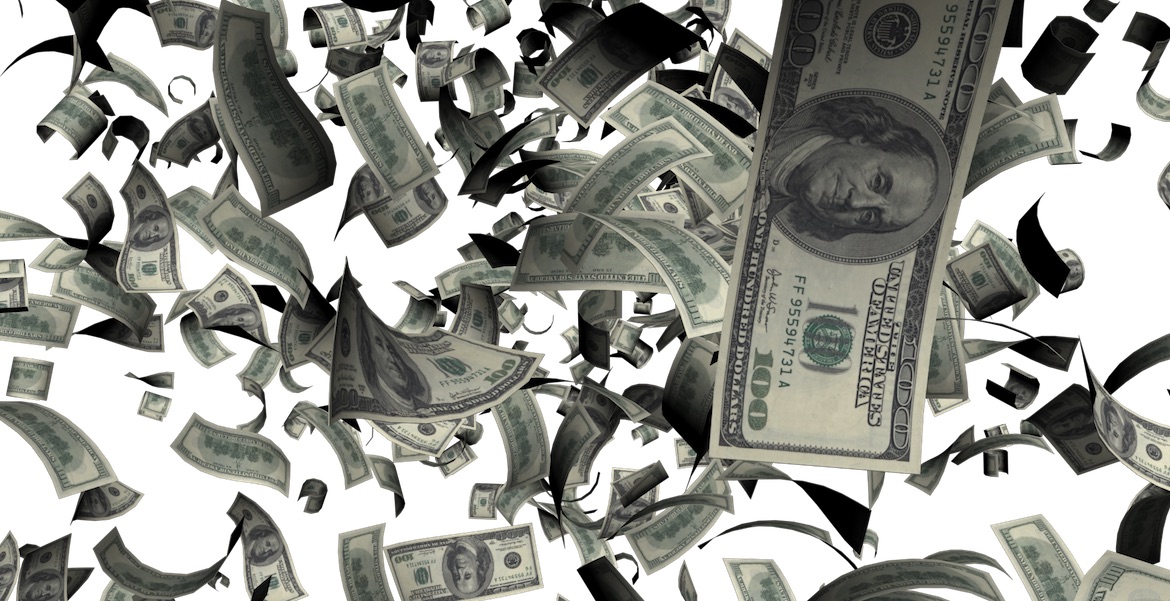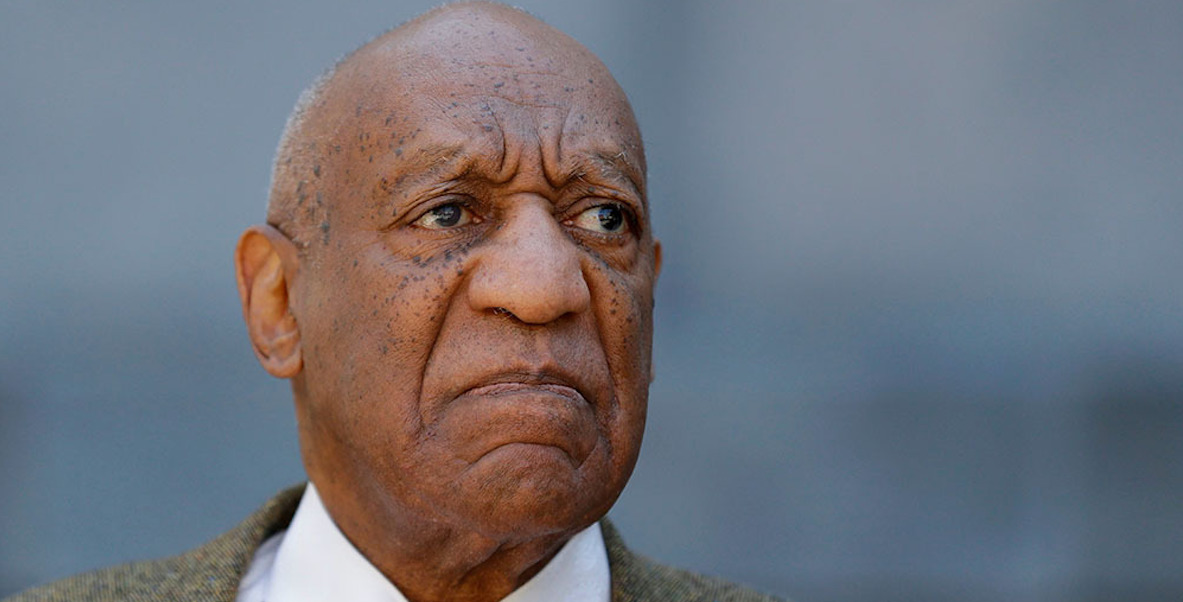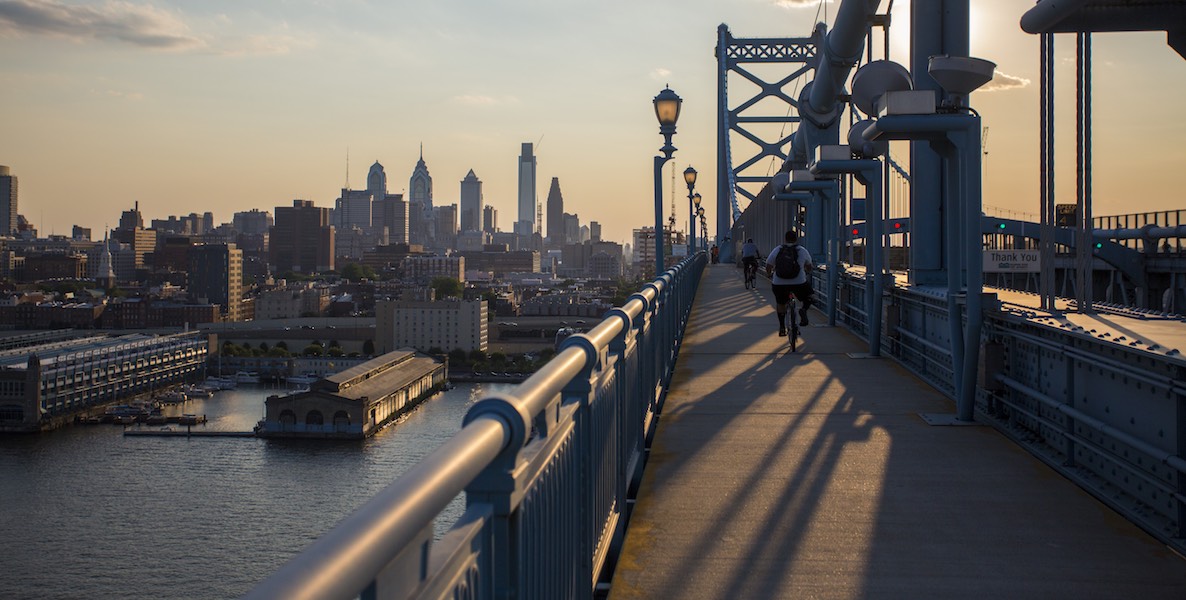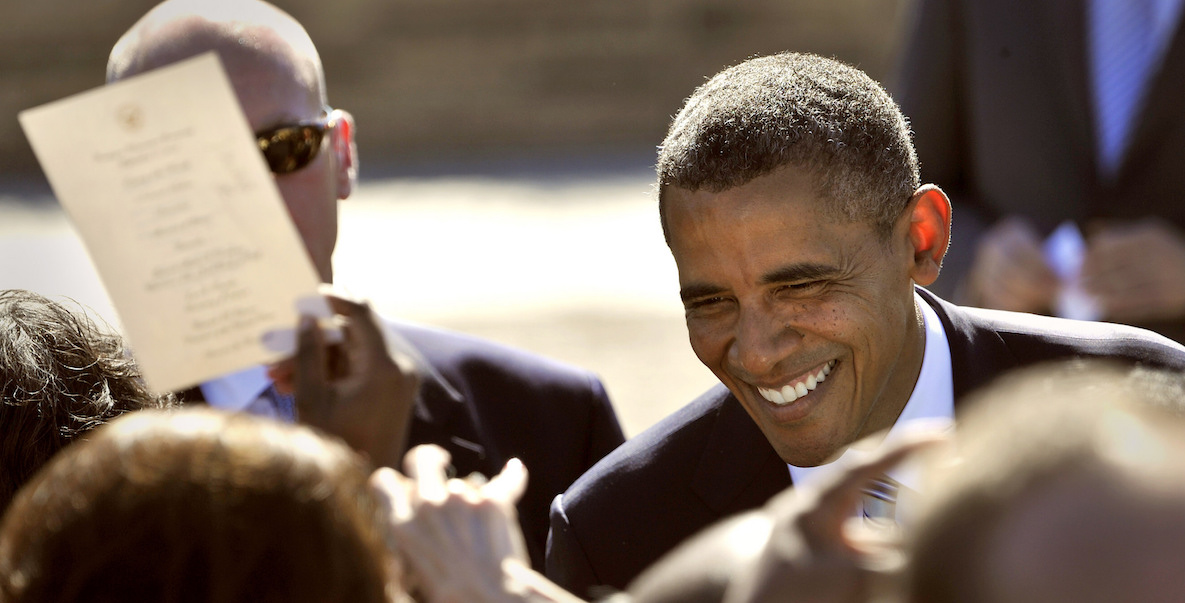In journalism, there’s a saying: Three makes a trend. It’s usually uttered ironically around the newsroom, as a self-conscious rationalization for some sociological navel-gazing. But cliches actually become cliches because they are, at least on some level, true. So it is that we’re seeing a trend right now in publishing, with a spate—three of ‘em!—of earnest, comedic, Obama White House memoirs, all from young staffers, all self-deprecating, all tales filled with hope, all pointedly reminding us that 1600 Pennsylvania Avenue wasn’t always home to darkness, narcissism, and petulance, that the snarl of Stephen Miller hasn’t always been the avatar of White House staff.
Be Part of the Solution
Become a Citizen member.There’s Obama speechwriter David Litt’s Thanks, Obama: My Hopey, Changey White House Years, complete with a tale of being caught in the Air Force One coat closet in his underwear and trenchant observations like this one about our polarization: “Day-to-day governing was like choosing the right words…elections were like choosing a language.”
Then there’s Who Thought This Was a Good Idea? And Other Questions You Should Have Answers to When You Work in the White House, by former Obama deputy chief of staff Alyssa Mastromonaco. Mastromonaco gives us comedic send-ups of her inconvenient irritable bowel syndrome episodes, but also paeans to the common decency of the President and his staff: “He never yelled or demeaned people,” she writes of Obama, noting that he most often expressed displeasure with staff by raising an eyebrow.

Prefer the audio version of this article? Listen to this story in CitizenCast below:

The most recent example of a book that pines for the halcyon days of all of two years ago is Pat Cunnane’s West Winging It: An Unpresidential Memoir. Cunnane is a Philly native, having grown up in Glenside; his father owns Fuji Bikes in Northeast Philly and his mother, Madeleine Dean, is a state representative and candidate for Congress in the 4th District. Like Litt and Mastromonaco, Cunnane, who started as a White House intern at 22 and ended up serving as a press wrangler and senior writer, has penned an entertaining, nostalgic narrative that is decidedly not a political memoir. Taken together, all three remind the reader—no matter their politics—that decency can be an end in itself, and that youthful idealism ought not be scoffed at.
Cunnane admits to being initially freaked out that, at 23, he was working in the White House and reporting to 25-year-olds. “But I think it helped to remind the president of what got him there in the first place,” he said. “That sense of hope. That’s a stark contrast to now.”
“I wrote this book because books like Fire and Fury and the Comey book are getting the most attention,” he said recently from Los Angeles, where he’s now a writer for the TV show Designated Survivor. “They portray a certain kind of White House. I wanted to paint the picture of a fun, funny, hopeful place, which is what I experienced.”
Remember the exhilarating youth movement that swept Obama to election in ’08? There they were, inside the White House—at pretty high levels. At one point, Cunnane writes self-deprecatingly of an exchange with his 20-something African-American colleague, likely within earshot of the President. It’s an encapsulation of the book: Funny, self-conscious, and, ultimately, in keeping with the earnest ethos of that Obama campaign a decade ago:
“Hey, don’t take this in any kind of a way,” I prefaced, already provoking her unease. I should have stopped right there. Sentences that start this way don’t end well. But I continued: “Do you watch Black-ish on ABC?”
At that very moment, our nation’s first African American president strode in, exhausted. We made eye contact, and he shook his head. He couldn’t have heard me, I thought. Even if he had, there was nothing wrong with my question, right? It was totally normal banter between colleagues. I loved the show and wanted to see what Crystal, a young black woman, thought. Oh, who was I kidding? I looked like an ass.
I was always curious: What must the President have thought, walking around the White House and seeing twenty-five-year-olds essentially running the place? What would Americans have thought if they knew that terrifying, wonderful truth: that their hopes and dreams rested in the hands of a bunch of twentysomethings? Mostly, I’m sure the president was proud, impressed by our professionalism, rejuvenated by our energy, grateful for our optimism. But that general sense of pride had to be punctured at least weekly by interactions like these: reminders that, yep, you’re the leader of the free world, but you’ve got a bunch of Millennials who actually make the place go…”What kind of a question is that?!” Crystal shot back the moment POTUS was out of sight…“Do I go around asking you what happened on How I Met Your Mother last night?”
Cunnane admits to being initially freaked out that, at 23, he was working in the White House and reporting to 25-year-olds. “But I think it helped to remind the president of what got him there in the first place,” he said. “That sense of hope. That’s a stark contrast to now.” Even now, at signings, he reports, parents of Millennials approach him, thanking him for writing something that doesn’t crap all over our politics. “They say they’re going to give it to their kids as a reminder that public service isn’t this terrible thing.”
Cunnane, who’d walk home late at night and “eat Oreos and watch House Hunters,” gives us a White House where super smart people take their work seriously, but not themselves; as narrator, he is our everyman, the butt of countless staff practical jokes. There are anecdotes galore, running the gamut. Like the time a particularly aggressive attempt is made to get into the presidential toilet Cunnane occupies; when he opens the door, he’s confronted by the hulking presence of one Shaquille O’Neal. (In his book, Litt writes uproariously of a piece of grilled salmon floating mysteriously in what very well may be the same presidential toilet, and wonders if there are national security implications.)
It’s easy to forget now how much words—and facts!—mattered not so long ago. No wonder Cunnane writes of his former boss: “It was Obama’s confidence wedded to his genuine humility that I witnessed connect in place after place, person after person, of every geography and station in life.”
It all makes you wonder just how much that distanced, ironic culture—which feels right out of West Wing—has changed. Perhaps the most revealing observation of James Comey’s recent book is not about Trump’s ham-handed attempt to influence an FBI investigation, but that there is a noticeable lack of a sense of humor emanating from the Oval Office these day: “I don’t recall seeing him laugh, ever,” Comey writes in A Higher Loyalty: Truth, Lies and Leadership. “Not during small talk before meetings. Not in a conversation. Not even here, during an ostensibly relaxed dinner…I suspect his apparent inability to do so is rooted in deep insecurity, his inability to be vulnerable or to risk himself by appreciating the humor of others, which, on reflection, is really very sad in a leader, and a little scary in a president.”
![]() Granted, there were legitimate criticisms to be made during the Obama White House years: a lack of political skill, too much belief in the transformative nature of policy papers. But Cunnane’s book, like the others, aren’t really about policy or even about Obama, the man. He makes cameos, as he no doubt did in the lives of his staffers. But even these glimpses make you yearn for what’s been lost. Who knew, after all, that 2014 was such an innocent time? It was the summer of that year that then-deputy press secretary Josh Earnest, panic-stricken, said to Cunnane: “We don’t know where the President is right now.”
Granted, there were legitimate criticisms to be made during the Obama White House years: a lack of political skill, too much belief in the transformative nature of policy papers. But Cunnane’s book, like the others, aren’t really about policy or even about Obama, the man. He makes cameos, as he no doubt did in the lives of his staffers. But even these glimpses make you yearn for what’s been lost. Who knew, after all, that 2014 was such an innocent time? It was the summer of that year that then-deputy press secretary Josh Earnest, panic-stricken, said to Cunnane: “We don’t know where the President is right now.”
Cunnane picks it up:
It was the summer of 2014, and the president was feeling a bit caged in. He wanted out of the bubble. We had developed a term for it earlier in the summer when POTUS veered from the pre-approved path around the White House to greet tourists nearby. “The Bear is loose,” we took to saying…He was at Starbucks. I did my best to keep the [press] pool at bay, but it was pandemonium when we arrived. The pool crept close. “C’mon, guys, give me some space,” the president asked, coffee cup in hand. Somebody asked what he’d ordered…Rather than answer, he looked at me. “Let’s test your wrangling skills”…
Juxtaposed against the Sorkin-like anecdotes are moving reminders of high-minded mission. Often, Cunnane reports, working at the White House was not dissimilar from toiling at Dunder Mifflin, the fictional sitcom paper company of The Office. But then POTUS would find the words to remind everyone why they were there, as did his remarks upon the death of Nelson Mandela, whose greatest gift, he said, was recognizing that “we are all bound together in ways that are invisible to the eye; that there is a oneness to humanity; that we achieve ourselves by sharing ourselves with others, and caring for those around us.”
It’s easy to forget now how much words—and facts!—mattered not so long ago. No wonder Cunnane writes of his former boss: “It was Obama’s confidence wedded to his genuine humility that I witnessed connect in place after place, person after person, of every geography and station in life.”
Donald Trump, with all of his retrograde acting out, may have sealed Obama’s fate in history, a verdict that will drive Trump mad: Meet Barack Obama, America’s family values president.
The reason Obama would escape the “bubble” of the White House is that he knew how isolating it could be, and how dangerous it was to reside in the people’s house and never interact with actual people. Cunnane writes that what kept the president and his staffers sane was their cultvating of “RPs”—short in White House parlance for “Real People.” They’d use the stories of real Americans to tell the daily story from the White House to the world. Cunnane’s job was to find such inspirational Americans and to use them to help sell a version of America to itself.
“Calling them ‘RPs’ sounds patronizing, but it’s their stories that remind you who you work for,” Cunnane says, referencing RPs like Sharon Belkofar, a Gold Star mother and grandmother who Cunnane wrangled to introduce the president at the Democratic National Convention here in Philly:
As the Obama presidency drew closer to its conclusion, we wanted to lift up what it all meant. What this president meant to America. Sharon Belkofer summed it up. “Some people in this world make big differences. My son Tom made big differences. The president continues to make big differences—and smaller ones, too, like the inspiration he poured into me so that I might make a difference of my own.” Sharon knew that her community’s schools needed more resources—and at the age of seventy-three, she decided to do something about it. She ran for her local school board, knocking on doors in the cold, bad back and all.
When I mention Sharon to Cunnane, he doesn’t miss a beat. “I love her,” he says. “I email back and forth with her all the time.” Of course Pat Cunnane was an Obama guy, with his utter lack of guile and cynicism. This is a guy who proposed to his girlfriend Stephanie Genuardi—of that Genuardi family, the local supermarket owners—in the Rose Garden; he met her in the second grade.
![]() Maybe it took Donald Trump—the adult film star-paying, female genitalia groping, prevaricating commander-in-chief to finally secure the true Obama legacy for the ages. Sure, he’ll be known as the first African American president. But Cunnane’s memoir raises another possibility, and it’s an ironic one. Donald Trump, with all of his retrograde acting out, may have sealed Obama’s fate in history, a verdict that will drive Trump mad: Meet Barack Obama, America’s family values president.
Maybe it took Donald Trump—the adult film star-paying, female genitalia groping, prevaricating commander-in-chief to finally secure the true Obama legacy for the ages. Sure, he’ll be known as the first African American president. But Cunnane’s memoir raises another possibility, and it’s an ironic one. Donald Trump, with all of his retrograde acting out, may have sealed Obama’s fate in history, a verdict that will drive Trump mad: Meet Barack Obama, America’s family values president.








